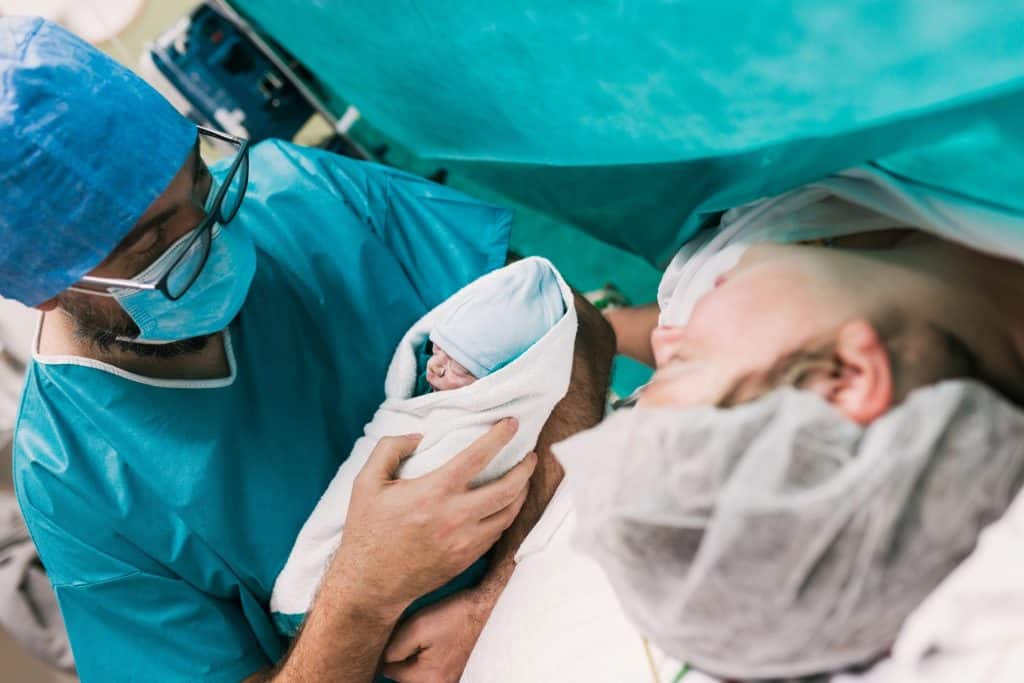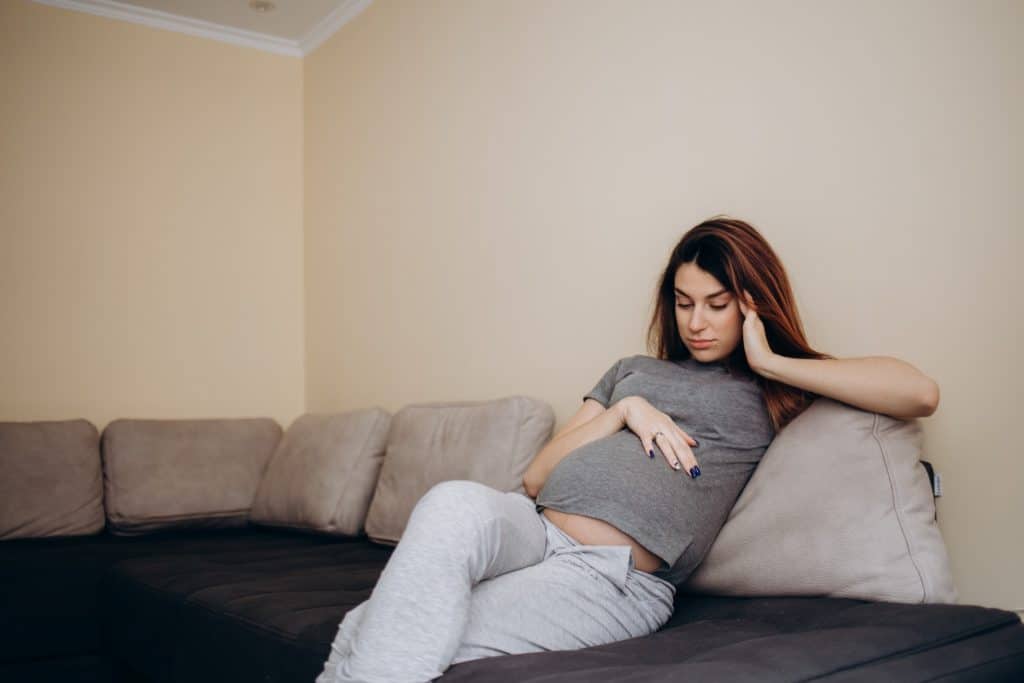C-Section deliveries are pretty common nowadays, but the procedure is known to come with its fair share of potential complications. While side effects like ingrown hair are pretty unpleasant nuisances after surgery, few are as severe as hip pain after C-Sections – in extreme cases, it can drastically impair a woman’s ability to take care of their newborn!
Hip pain after C-Section can be caused by the surgical procedure itself, lifestyle choices, or even pre-existing health conditions. Thankfully, you can mitigate the worst of this experience by getting proper rest, taking (only doctor-prescribed) pain medication, and making generous use of warm and cold compresses in the affected region.
If the problem is due to muscle weakness, you’ll have to work on your conditioning! Start off gently with some light stretching to make the habit easier to maintain.
Hip pain after C-Section delivery is a common experience for many women. We’ll go over a few potential causes of that discomfort and provide a few pointers to help you relieve that pain.
Why Do I Feel Hip Pain After C-Section Delivery
Surgical Reasons

The root of your hip pain might be due to the C-Section procedure itself. During C-Section deliveries, the expectant mother needs to lie back with their lower body slightly elevated.
This position is relatively comfortable – and even if it weren’t, the sizeable amount of pain medications given before the procedure will easily mitigate that feeling.
The problem is that this position also puts pressure on their hips and lower back. Mothers undergoing C-Section delivery need to sustain this position for anywhere between 45 minutes to 2 whole hours, which could leave their backs and hips aching for days after surgery.
C-Sections are also invasive procedures, and the incisions made create a ton of new scar tissue. Scar tissue is much thicker than normal skin and may end up pulling at surrounding tissue.
This scar tissue could form bands around the surgical site, putting pressure on a mother’s pelvis. This not only causes hip pain but may end up restricting their range of motion.
Lifestyle Contributions

While C-Section deliveries can be worrying, it’s also possible that the reasons behind your hip pain came way before the operation itself!
During pregnancy, a woman’s abdominal muscles and pelvic ligaments have to stretch out and weaken to accommodate the growing fetus. This would only get exacerbated after the C-Section delivery, as incisions need to be made on the patient’s abdominal wall.
While the hip pain should improve in time, further physical strain will disrupt the healing process. Even lifting your baby up for a short while will take a toll on your already-weakened body, which will make your existing hip pain even more awful to handle. Hormones can also contribute to hip pain during pregnancy, with the most notable one being Relaxin.
Relaxin is a key hormone that helps prepare a woman’s body for childbirth, loosening ligaments near the pelvis. This causes instability and potential misalignment of joints, which can compound the hip pain mothers may feel after C-Section deliveries.
Genetic Factors
Some prospective mothers may also have to contend with pre-existing conditions that render them more prone to hip pain (i.e. arthritis, hip dysplasia).
Women can still mitigate hip pain following C-Section operations, but genetic predispositions will present a significant challenge for them.
Alleviating Hip Pain After C-Section
Get to Bed!
Once you’re done with the delivery, make sure to get some rest! Your body needs time to heal, and straining yourself is the last thing you need with fresh surgical stitches still settling in.
If you’re reeling from C-Section hip pain, be sure to place a pillow under your legs before lying down. This is meant to slightly elevate your thighs, reducing the pressure on your hips and butt.
But don’t stay bedridden for too long, as that’ll create an entirely different problem in time!
Pain Medication
Your doctor is likely to prescribe pain meds to help you manage after surgery – stick to the meds and dosage given. Do not take any medication that your doctor hasn’t explicitly approved.
A lot of over-the-counter pain meds can’t be taken after a C-Section operation, as they could end up causing serious side effects like inhibited blood clotting. Even the meds you’ve been cleared to take need to have their dosages closely regulated to ensure the mother’s well-being.
Cold and Warm Compress Use
If you haven’t been able to pick up painkillers, or are already at maximum safe dosage, cold and warm compresses could help provide much-needed relief for pain after C-Section surgery.
Compresses aren’t meant to be used interchangeably: cold compress helps people recover from acute injuries, while warm compress mitigates chronic issues like tension and cramping.
Start by using a cold compress for your hip pain, as your body still needs to recover from taxing surgery. It’ll help reduce swelling and numb the sensitive area to a more manageable degree.
Once the acute discomfort stops (normally after three days), swap over to warm compress use. You need to address muscle soreness, which a warm compress soothes by encouraging more blood to flow toward the affected area.
Get Back to Exercising Again

Pregnancy tends to have a negative impact on muscle conditioning. This can occur directly, as certain muscles (i.e. abdominal muscles, diaphragm) end up stretched and weakened over the course of the pregnancy.
Pregnancy can also indirectly impact muscle conditioning by inducing fatigue and increasing the risk of injury, disincentivizing most physical activity and exercise.
Poor conditioning puts extra strain on your hips, along with other muscles and joints in the region. It’s good to take it easy after such an intense surgical procedure but get back to improving your physical conditioning as soon as you’re able.
Start with gentle stretching to ease your muscles into the process, then keep at the goal as steadily as you can manage. If you’re following these steps, your C-Section hip pain should subside in short order.
If your symptoms persist or worsen despite preventative measures, you need to consult your doctor to identify the underlying issue and explore effective treatment options.
Final Thoughts
Hip pain after a C-Section delivery can feel overwhelming for mothers. Addressing it early on is crucial, as letting it be would only continue to worsen the mother’s condition.
There are plenty of home remedies and treatments worth exploring that can provide immediate relief, but if the pain continues to worsen don’t be afraid to let your doctor know.